Auto start-stop technology is the automotive industry’s solution to increasing fuel efficiency and reducing carbon emissions. This advanced feature has received various reactions from drivers, marking a significant advancement in car engineering. Drivers who understand how it works and recognize its warning signals can optimize its benefits and ensure safety.
Chrysler Auto Start Stop Warning Light Causes and Solution
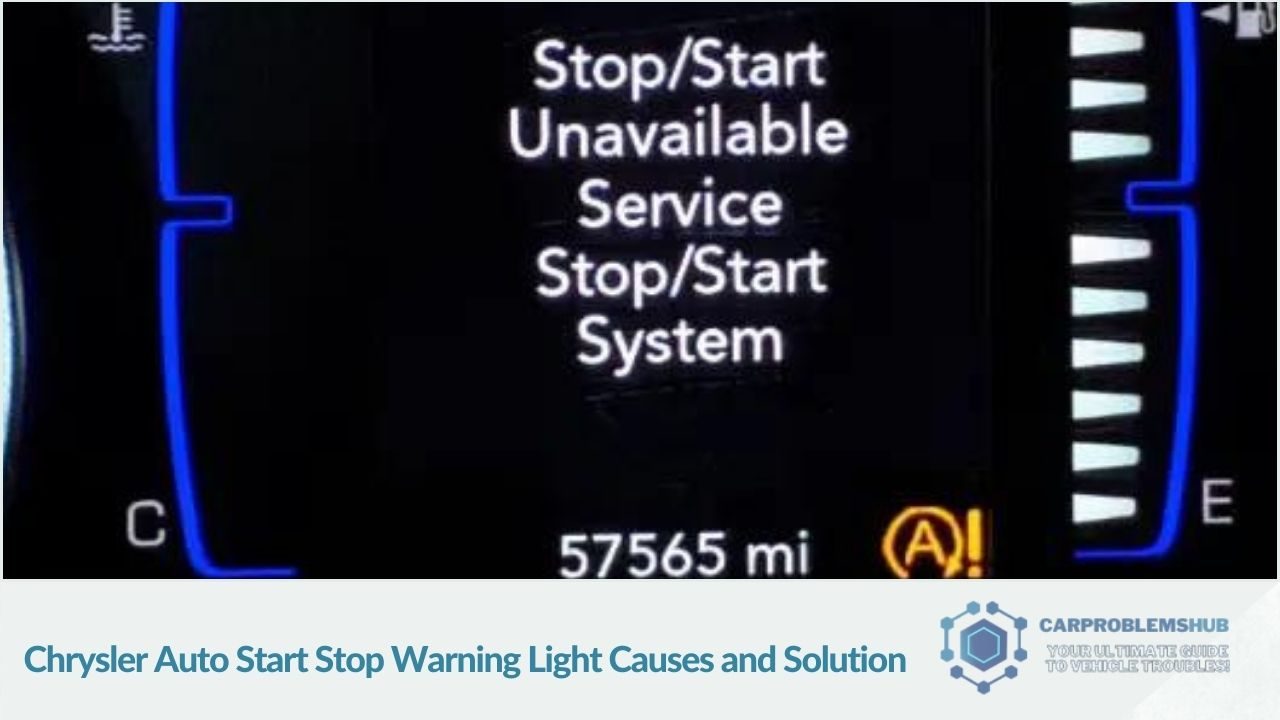
When the auto stop/start system warning light in your Chrysler vehicles comes on, it’s crucial to understand the potential reasons and how to address them. Our research has identified the most common causes:
- Battery nearing the end of its life.
- Battery terminal suffering from corrosion.
- Occasional electrical problems.
- Malfunctions in sensors or the system itself.
- Issues related to software.
- A defective Intelligent Battery Sensor (IBS).
It’s important to take immediate action if you see this warning light. Please read for a comprehensive overview of the auto stop/start system warning light and its implications.
Understanding the 2017 Chrysler Auto Start Stop Warning Light
- Green Light for Go: A solid green light indicates the start-stop system is operational and ready to use.
- Activation Signal: When the vehicle stops, like at a traffic signal, and the system is working, the light remains on to show it’s active.
- Amber Alert: A steady amber light signals a system issue needing attention, though it’s not an immediate danger.
- Flashing Warning: A flashing light, no matter the color, suggests a potential malfunction in the system.
- Vehicle Communication: This light is how your vehicle communicates the health of its start-stop system. Monitoring it helps maintain system efficiency.
Automatic Start-Stop Mechanics and Activation in 2018 Chrysler Vehicles:
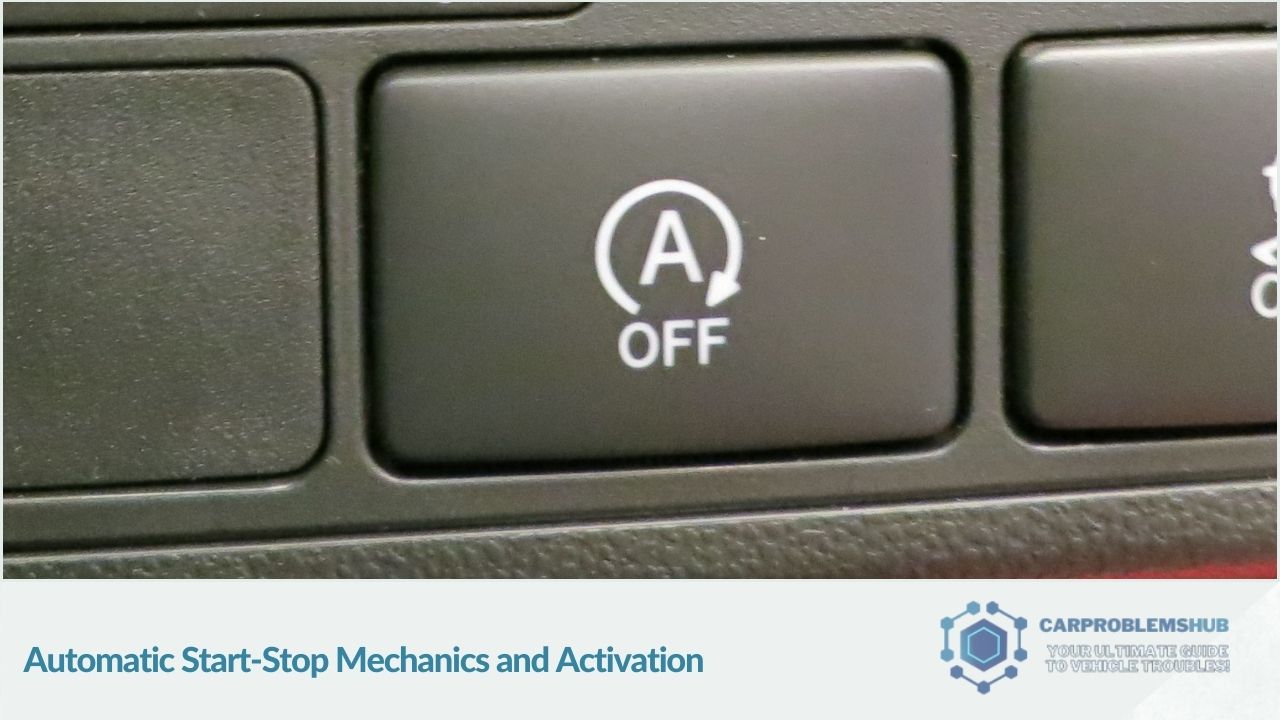
The system relies on advanced sensors and algorithms to monitor the vehicle’s status and driver actions. For example, when the car slows and stops at a red light or in heavy traffic, it detects this idle state. It then shuts off the engine to save fuel that would otherwise be wasted.
The system’s brilliance lies in its quick response. As soon as you release the brake or press the clutch (in manual cars), the engine quickly restarts. This rapid restart means drivers barely notice any delay, ensuring a seamless experience.
Factors Affecting the Automatic Start-Stop System in 2019 Chrysler Cars
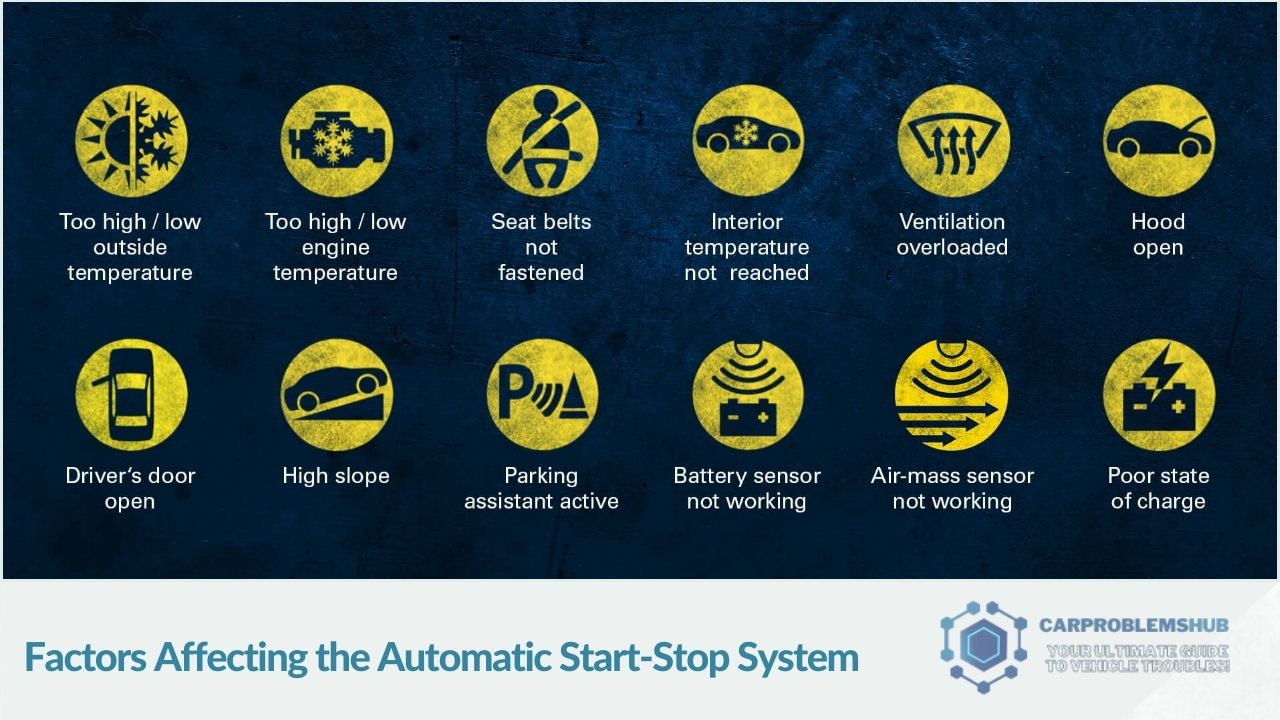
- Integrated Operation: The auto start-stop system works with other car systems to determine the best activation times.
- Battery Level: A key factor. If the battery is low, the system might not activate, as restarting the engine requires a certain amount of energy.
- Engine Temperature: The system checks if the engine is at the right temperature. If it’s too cold or overheated, the system remains off to protect the engine.
- Interior Comfort: The system considers the cabin’s temperature. On cold days, with the heater on, it might not activate to keep the interior warm.
- Efficiency and Comfort Balance: The system also maintains vehicle performance and passenger comfort while aiming for fuel efficiency.
Battery Requirements for Start-Stop Systems
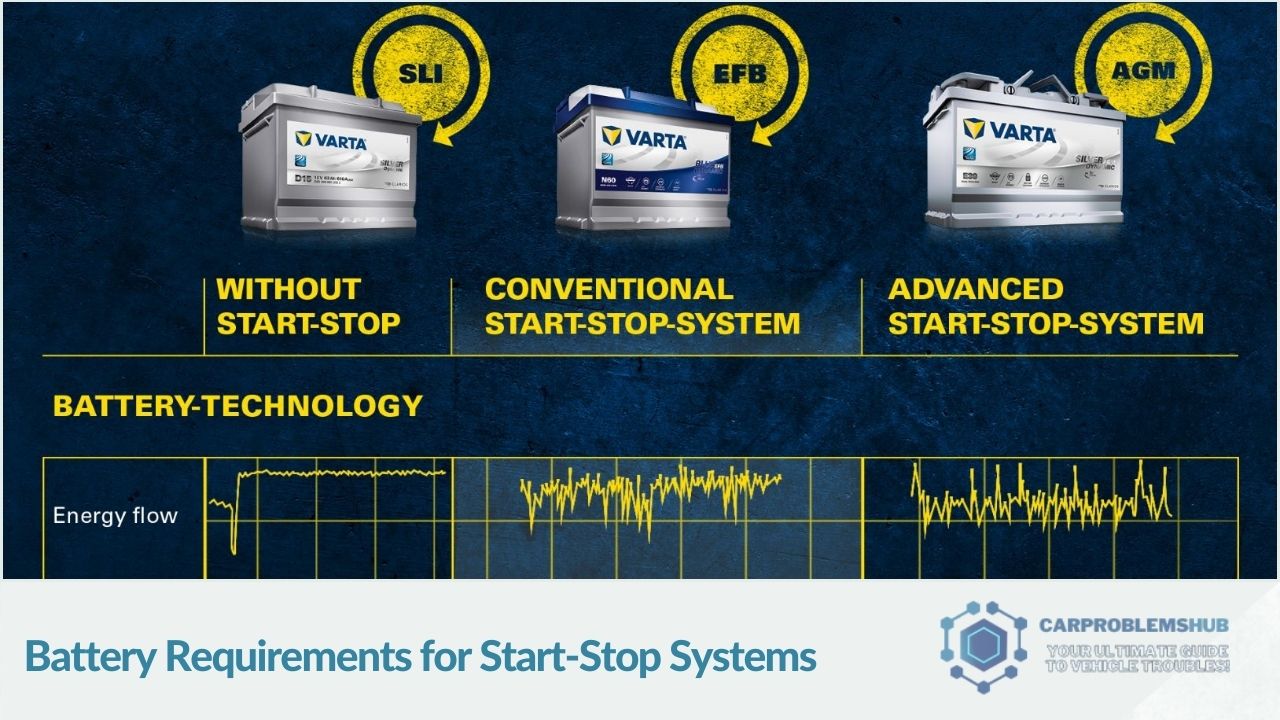
- Custom Design: Batteries for start-stop systems are specifically made to handle frequent starting and stopping, unlike standard batteries. They’re built to endure the heavy-duty cycles required by this system.
- Enhanced Strength: These batteries are designed for durability and are capable of multiple charge and discharge cycles without rapid wear.
- Specific Energy Delivery: They provide quick energy bursts to restart the engine, unlike traditional batteries that offer a steady power flow for initial start-up and electronics.
- Longer Life Cycle: Start-stop batteries are engineered to withstand many more on-off cycles than regular batteries.
- Identifiable Features: While similar in appearance, start-stop batteries usually have unique labels or markings for easy identification during purchase or replacement.
- Special Maintenance: They demand particular maintenance practices, as standard chargers might not suit these batteries, underscoring their special care needs.
- Cost Factor: Despite being pricier than conventional batteries, their long life and fuel-saving capabilities often outweigh the initial expense.
Fuel Efficiency and Auto Start Stop Technology
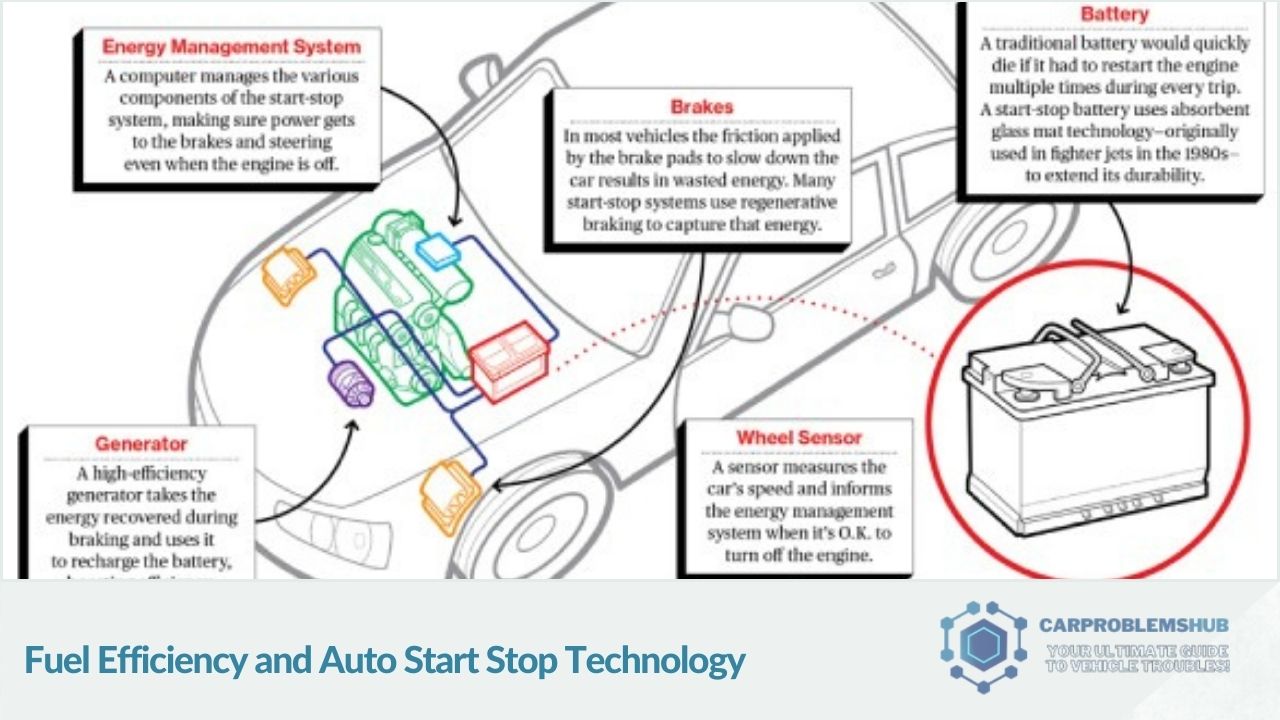
Fuel efficiency is a growing priority for drivers, especially with rising fuel costs and environmental concerns. The auto start-stop system, which shuts off the engine during short stops and restarts it quickly, aims to reduce fuel usage and emissions.
Real-world data shows about a 5-7% increase in fuel efficiency in stop-and-go traffic. Though modest, these savings increase over time, especially for regular city drivers or commuters. Additionally, reduced fuel use means lower carbon emissions, benefiting both the driver and the environment.
Handling Auto Start Stop System Malfunctions
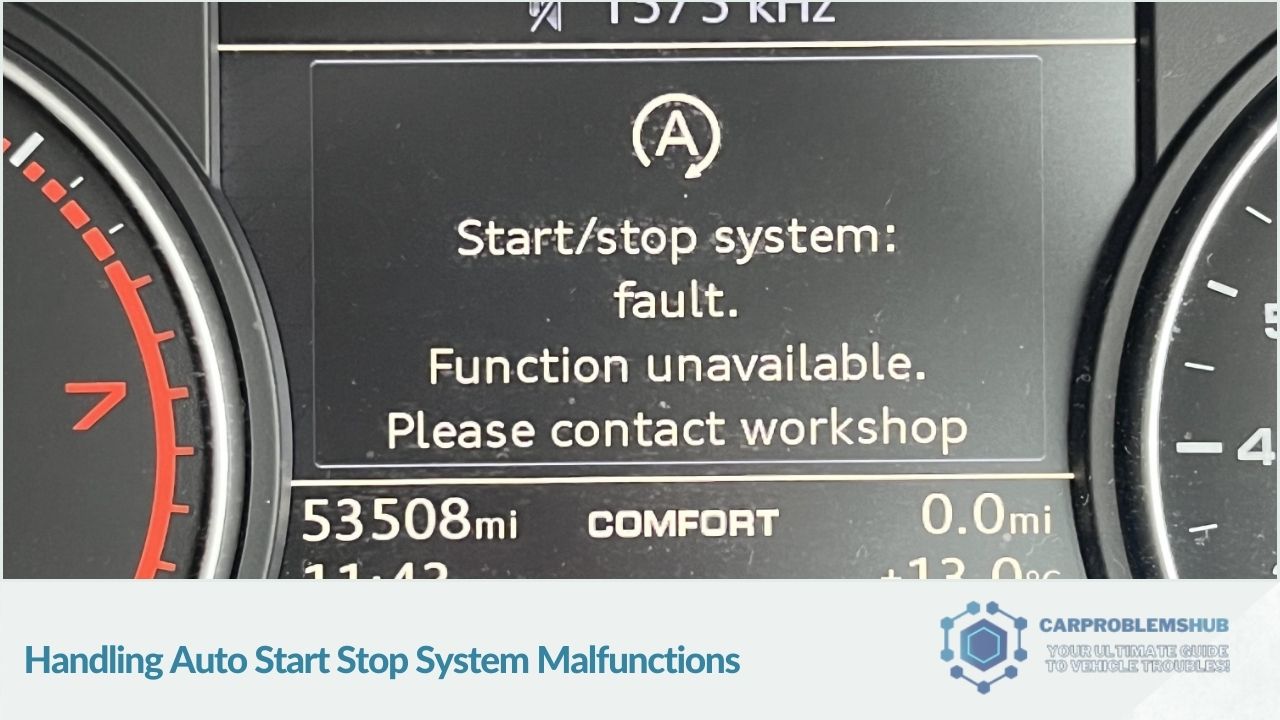
The auto start-stop system can have issues with any advanced vehicle technology. Recognizing these problems is key to avoiding larger concerns.
A clear sign of a malfunction is when the system doesn’t activate during typical scenarios, like at a traffic light. Another indicator is a continuous amber warning light on the dashboard, suggesting a problem. A blinking engine start-stop button is a more urgent sign of a system issue. These signs emphasize the importance of regular vehicle checks and having a reliable mechanic for a smooth, safe driving experience.
Maintenance Costs for Start-Stop Systems on 2020 Chrysler Vehicles
Maintaining the start-stop feature can vary from basic software updates to more complex battery changes. Early problem detection can lead to significant cost savings over time.
- Software Refinements: Sometimes, a simple software update is required. This can be quite affordable, typically costing between $50 and $100.
- Sensor Replacement Costs: The system relies on several sensors, and replacing one may range from $100 to $200.
- Battery Exchange Expenses: Due to their specialized nature, start-stop batteries cost between $200 to $500 to replace.
- Diagnostic Assessments: If the problem isn’t immediately apparent, diagnostic tests may be needed, usually costing about $50 to $100.
- The Value of Proactivity: Tackling minor issues early can avoid costlier repairs later. Maintenance is generally more economical than repair.
Final Thoughts
The auto start-stop system reflects the automotive industry’s dedication to innovation and environmental consideration. Understanding its complexities is crucial for smooth operation. Knowledge empowers drivers to handle any minor issues effectively. For major concerns, it’s wise to rely on professionals. Remember, safe and informed driving is key!
📚 Further reading: GMC Vibration Recall
Was this page helpful?

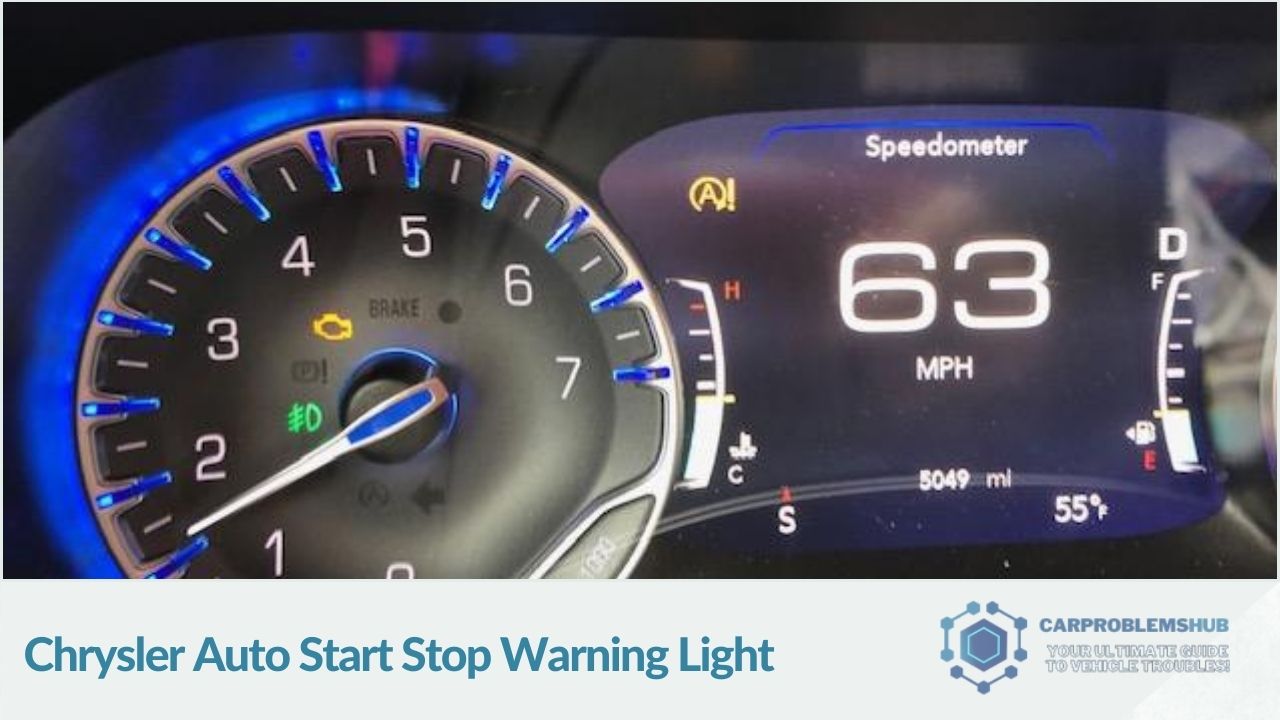
Similar Problems in Other Models
Forklift Warning Lights, Symbols and Meanings
Is the Nissan Pathfinder 4WD Warning Light on?
International Truck Dashboard Symbols And Meanings
JCB Loader Dashboard Warning Lights And Symbols
Heavy Equipment Caterpillar Warning Symbols and Meanings
Car News and Reviews
Would you like to take a look at the car news and reviews we have carefully selected and published for you?
2024 Lucid Air Prices Go Down
GM's Big Road Network for Hands-Free Driving
DTC C0561-71 Vacuum Sensor Code on GM, GMC and Chevy
C1201 Code Toyota and Lexus (Causes and Solutions)
Chrysler Auto Start Stop Warning Light (Causes and Solutions)
2024 Ford Mustang GT: Digital Age Meets Classic Power
The 2024 Chevrolet Silverado 2500HD ZR2: An Off-Road Marvel
2024 Chevy Colorado ZR2 Bison: The Ultimate Off-Road Experience
The 2024 Lucid Air Sapphire Track Drive Experience
2024 Subaru Forester Review, Specs, Price, Release Date